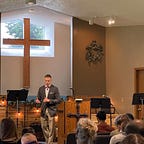Parroting the Preachers: The Influence of Second Great Awakening Revival Meetings on the Development of American Political Rallies
The Second Great Awakening, a religious revival movement in the early 19th century, had a profound impact on American society, including its political landscape. This article explores the influence of camp revival meetings during the Second Great Awakening on the development of American political rallies. By examining primary and secondary sources, this study sheds light on how the religious fervor and organizational structure of camp revivals shaped the form and function of political gatherings in the United States.
I. The Second Great Awakening and Camp Revival Meetings
The Second Great Awakening was characterized by a renewed emphasis on personal piety, emotional conversion experiences, and religious enthusiasm. Camp revival meetings emerged as a popular method of gathering believers for extended periods of spiritual reflection and worship. These meetings took place in outdoor settings, such as fields or forests, and drew large crowds from diverse social and economic backgrounds[1].
II. The Role of Emotionalism and Public Speaking
Camp revival meetings were marked by fervent preaching, emotionalism, and impassioned public speaking. Preachers utilized vivid language, dramatic gestures, and rhetorical techniques to elicit strong emotional responses from the audience[2]. This emphasis on emotional engagement and persuasive oratory had a lasting influence on the style and tone of political rallies.
III. Mobilizing Masses and Building Networks
Camp revival meetings provided opportunities for social networking, fostering connections among like-minded individuals. Attendees shared their spiritual experiences, forged new relationships, and formed community bonds. These gatherings facilitated the exchange of ideas, information, and resources[3]. The organizational structure and sense of collective purpose cultivated during camp revivals would later be replicated in political rallies.
IV. Transference of Methods to Political Rallies
The techniques and organizational patterns of camp revival meetings were adapted for political purposes, particularly during the mid-19th century. Political candidates and movements began utilizing large-scale public gatherings to mobilize and rally supporters. Like revival meetings, political rallies aimed to elicit emotional responses and create a sense of shared identity and purpose among attendees[4].
V. The Rise of Political Revivalism
The influence of camp revival meetings on political rallies led to the emergence of a phenomenon known as “political revivalism.” This involved the fusion of religious fervor and political enthusiasm, with politicians employing religious language, symbols, and emotional appeals to garner support for their causes[5]. Political revivalism created a powerful sense of moral urgency, framing political issues in religious terms and motivating voters to take action.
VI. Legacy and Contemporary Significance
The influence of camp revival meetings on the development of American political rallies continues to be felt today. The use of emotional appeals, charismatic public speaking, and the creation of collective experiences in political gatherings can be traced back to the religious fervor and organizational structures of the Second Great Awakening. These elements remain integral to modern political campaigns and movements, highlighting the enduring legacy of camp revival meetings on American political culture.
Conclusion
The influence of camp revival meetings during the Second Great Awakening on the development of American political rallies cannot be overstated. The emphasis on emotionalism, persuasive oratory, and community-building in religious gatherings paved the way for the adoption of similar techniques in political contexts. The fusion of religious fervor and political enthusiasm created a unique form of political revivalism, shaping the way politicians engage with and mobilize the masses. The enduring legacy of camp revival meetings highlights the profound impact of religious movements on American political culture.
Footnotes:
[1] Hatch, Nathan O. The Democratization of American Christianity. Yale University Press, 1991.
[2] Carwardine, Richard. Evangelicals and Politics in Antebellum America. Yale University Press, 1993.
[3] Heyrman, Christine Leigh. Southern Cross: The Beginnings of the Bible Belt. The University of North Carolina Press, 1997.
[4] Buel, Richard, Jr. America on the Brink: How the Political Struggle over the War of 1812 Almost Destroyed the Young Republic. Palgrave Macmillan, 2005.
[5] Finke, Roger, and Rodney Stark. The Churching of America, 1776–2005: Winners and Losers in Our Religious Economy. Rutgers University Press, 2005.
